It’s easy to assume that a comfortable religious space is automatically a good one.

If everyone’s nice, the services are familiar, and the atmosphere feels warm, it might seem like all is well. However, comfort alone doesn’t always equal health. A truly healthy religious community challenges people to grow, encourages openness, and creates space for both faith and questions.
Sometimes, the most supportive environments are the ones that don’t just hand you answers, but help you wrestle with them. It doesn’t have to be perfect. In fact, it’s being honest, safe, and rooted in compassion that’s most important. Here are some signs that your religious community isn’t just familiar, but truly healthy and life-giving.
1. People are allowed to ask hard questions.

In a healthy faith space, curiosity isn’t seen as rebellion. People can ask about theology, doubt, or real-life struggles without being shut down or made to feel like they’re doing something wrong. It shows that the community values growth over control. Questions are seen as part of the journey, not a threat to it. That openness often creates deeper connection, both to each other and to the spiritual path itself.
2. There’s no pressure to perform perfection.

If people feel like they have to look or act a certain way to belong, that’s a red flag. Healthy communities understand that faith is messy, personal, and sometimes full of struggle. Rather than putting pressure on image, they encourage honesty. You don’t have to hide your bad week, fake your joy, or gloss over doubts just to fit in. You’re allowed to be real, and that’s where the connection truly starts.
3. Leadership is approachable and accountable.

Good leaders don’t act like they’re above the group. They’re part of the community too—open to feedback, willing to admit when they’re wrong, and more interested in serving than being idolised. Accountability means there are healthy boundaries in place. Power isn’t abused, and leaders don’t get a free pass for bad behaviour just because they’re in charge. That kind of transparency builds trust that lasts.
4. Different perspectives are respected.

In healthy religious spaces, you’ll find room for a range of beliefs and interpretations. People might not always agree on everything, but they’re willing to listen, learn, and coexist with kindness. When diversity is welcomed, it makes the community richer. It shows that people aren’t expected to think in lockstep, but are encouraged to engage their faith with thoughtfulness and intention.
5. There’s space for people to grow and change.

A sign of a thriving community is that no one’s expected to stay exactly the same. Growth is part of the journey, and people are allowed to change, evolve, and explore their beliefs as time goes on. That means people are given grace—grace to question, to stumble, to move at their own pace. Instead of fearing change, the group embraces it as a sign of a living, breathing faith.
6. Service isn’t performative, it’s genuine.

In a healthy space, helping other people isn’t about being seen or praised. It comes from a place of love and conviction, not a desire to look good or tick a spiritual box. Service is part of the rhythm of the community. It’s woven into daily life and done without fanfare, just because it matters. You feel it in the small acts of kindness, not just the big projects.
7. People’s boundaries are respected.
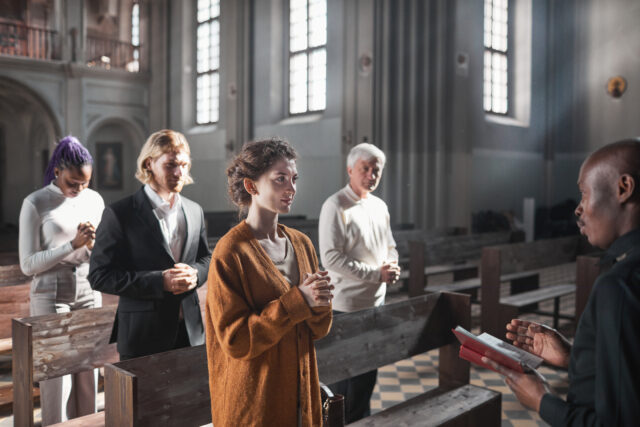
There’s no pressure to share more than you want to, take on more than you can handle, or open up before you’re ready. In a healthy religious community, boundaries are seen as necessary and wise, not as barriers to faith. That respect creates an environment where people feel safe. They’re trusted to make decisions for themselves, and no one uses guilt or manipulation to get them to do otherwise.
8. The community supports people outside of it too.
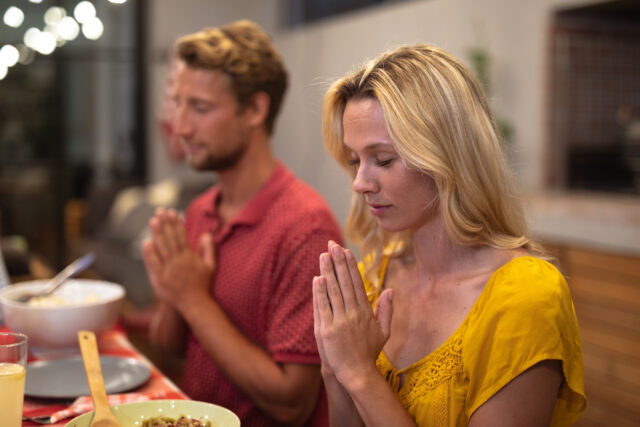
It’s easy to care for your own group. But a healthy community looks beyond its walls. They care about the wider world, whether that means helping neighbours, supporting global causes, or simply showing kindness to strangers. Outward focus reminds people that faith isn’t just inward—it’s about how we live and serve in the world. There’s no “us versus them” mentality, just a quiet commitment to compassion in every direction.
9. Mistakes are met with grace, not shame.
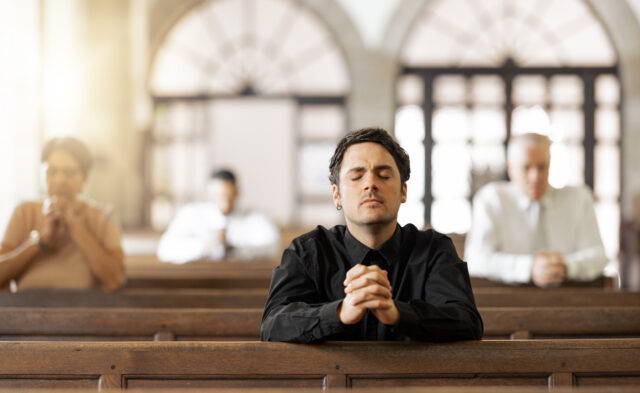
Everyone messes up. In a toxic environment, those missteps are met with gossip, judgment, or exclusion. However, in a healthy one, mistakes become moments for learning, support, and second chances. It doesn’t mean there aren’t boundaries or consequences, but the approach is restorative, not punitive. People feel held, not humiliated. That’s how trust grows even stronger after hard moments.
10. No one is expected to earn their worth.
 Source: Unsplash
Source: Unsplash Some communities send the message, sometimes subtly, that you need to volunteer more, give more, or do more to prove your value. However, in a truly healthy space, your worth isn’t tied to how much you contribute. You’re loved and welcomed simply because you’re human. Anything else you do is an offering, not an obligation. That unconditional acceptance takes the pressure off and allows people to show up authentically.
11. People are allowed to say, “I don’t know.”
 Source: Unsplash
Source: Unsplash Certainty can feel comforting, but it’s not always honest. In a healthy faith community, people are allowed to sit with the unknown. There’s room for mystery, tension, and unanswered questions. That creates a deeper, more grounded kind of faith—one that isn’t threatened by uncertainty, but actually strengthened by it. It feels more real, more human, and far more sustainable in the long run.
12. Joy isn’t forced, it’s organic.
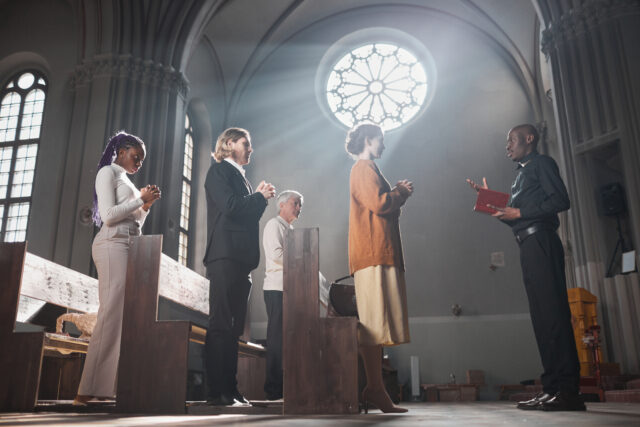
Some spaces push a kind of constant positivity that doesn’t leave room for real-life lows. In contrast, a healthy community allows for a full emotional range. Joy is present, but it’s never forced. People laugh, celebrate, and find comfort in one another—but there’s also space for grief, disappointment, and struggle. That emotional honesty makes the joy even more meaningful when it does show up.
13. There’s room for different life stages and paths.
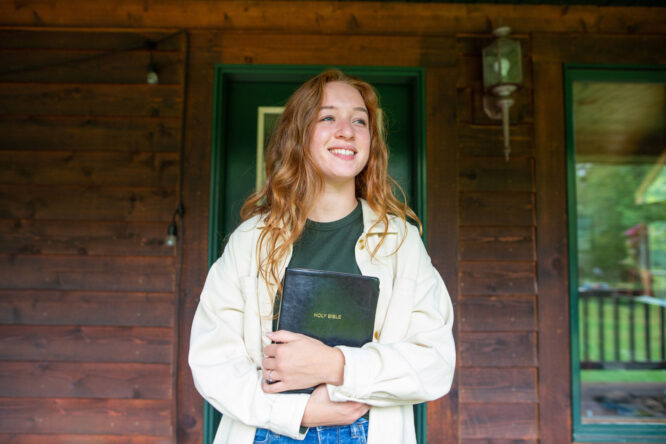
In a truly healthy space, you don’t have to be married, have kids, or live a certain kind of life to belong. Singles, parents, elders, young people—they’re all valued without comparison or pressure to “fit in.” That diversity of experience adds richness to the community. Everyone brings something different to the table, and no one’s journey is seen as more spiritual or worthy than someone else’s.
14. People leave and come back without shame.
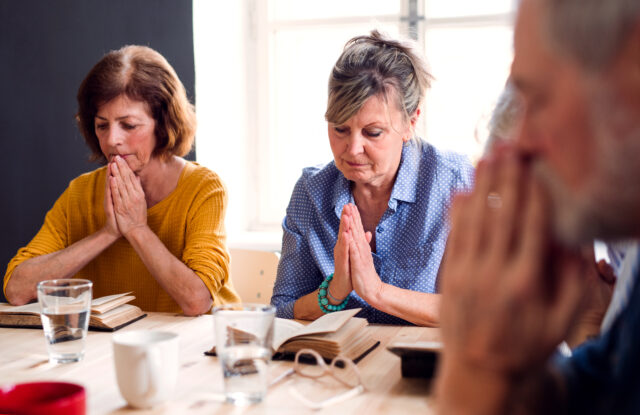
Sometimes people need to take space from their faith or their community. In a healthy space, this is respected, not punished. There’s no gossip, no pressure—just an open door whenever they’re ready. When people return, they’re welcomed with warmth, not suspicion. That flexibility shows that the community isn’t about control—it’s about love. And that’s what keeps people coming back, even after time away.




